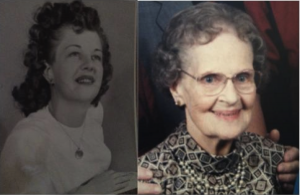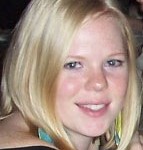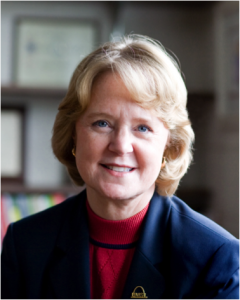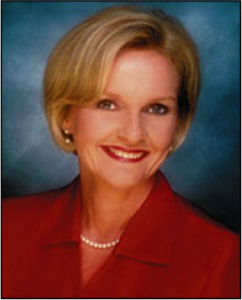UMSL Alum Dr. Patricia Kopetz Follows Her Passions; Lives the Dream
Educator, World-Traveler, Child and Diversity Advocate, World Domination – It Must Be Women’s History Month
Dr. Patricia Kopetz is a local teacher, and also globe-trotting trailblazer. Whether it be in arenas of feminism, diversity, or education – she has continually fought for progress in an industry plagued by traditional, antiquated programs, deterring budget squabbles, and lethargic bureaucracy.
It is because of Dr. Kopetz’s passion and drive that she has been invited to speak at events all over the world, such as in: in California, China, Lesotho, and Greece, in order to promote her findings and challenge academia to provide more innovative methods to educate the world’s diverse population. During her day job, Dr. Kopetz designs and sponsors programs aimed at improving education for learning disabled children, while simultaneously empowering future UMSL educators with the latest and best academic techniques.
We asked her if she wouldn’t mind answering a few questions for us in honor of Women’s History Month, so we could learn what it is that inspires her ambition, how UMSL contributed to her career success, what Women’s History Month means to her, and her advice for the current generation of educators and business women.
(UMSL Business): Please give us a little background on where you are from, your family and your upbringing.
(Dr. Kopetz): I am a native St. Louisan, brought up in St. Louis County. My parents moved our family to St. Louis in 1958, and my next home was in Chattanooga, Tennessee, in 1983.
(UB): Please tell us about your job.
(DK): I hold an endowed professorship in the College of Education at UMSL, and am completing my eighth year here. My job entails teaching graduate education courses, primarily supporting pedagogy that provides current educators with knowledge about, and skills that help in, teaching students with learning differences (everything from low-incidence disabilities: like intellectual and developmental disabilities, multiple disabilities, and autism – to high-incidence disabilities: like ADD/ADHD, specific learning disabilities, high-functioning autism, and behavior disorders).
My business matters because we live in an inclusive, diverse world of people, personalities, backgrounds, cultures, attitudes, and abilities; and today’s classrooms of learners should, and most likely do, mirror that set of varying dynamics.
(UB): How many people in your immediate family have attended college and how do you feel about that?
(DK): My parents, born and raised during the Great Depression years, felt fortunate that education was important in their families when they were growing up. My mother was proud to have completed the 7th grade, which was the norm in rural West Virginia. During World War II, she took a job as a draftswoman/map maker, and designed aerial maps for U.S. Air Force fighter pilots. Meanwhile, my father, having completed high school in Lansing, Michigan, was post-high school immediately drafted to serve in the Army (Pacific Theatre) during World War II.
When the war was over, he took a position as Cartographer (map maker) at the Pentagon in Washington, D.C., where he met my mother. While later raising the family with my mother in St. Louis, my father was successful in completing his bachelor’s degree in mechanical engineering (via remote access) from Michigan State University in Lansing, MI, the place where he was raised and schooled.
I was proud that my parents extended themselves, educationally, to the limits best possible during their era and in their geographic location.
(UB): What reasons made you decide to pursue a Master’s in Education at UMSL?
(DK): The M.Ed. from UMSL was pursued because, in teaching elementary youngsters, what I learned with my bachelor’s degree was just not enough. I needed to figure out ways to help the students who learned differently than the average student or the masses. I entered the UMSL M.Ed. program first to explore Special Education in countries of Western Europe and Scandinavia, searching to learn what methods used in those countries were met with success. Then, with the majority of remaining coursework taken on the UMSL campus, I learned a deeper philosophy of how learning occurs, and how to assess children for learning difficulties early in their lives, and I continued studying new techniques and interventions that improved my teaching in the elementary grades.
I later pursued my doctorate in Educational Leadership at SLU, a field I knew little about, but a field that my academic advisor strongly encouraged that I pursue. At the time, during the early 1980s, there were few women in the Educational Leadership doctoral degree at SLU. It was an odd experience, but was privileged to receive the keen, insightful mentorship of Dr. Theodore Kowalski, and he, along with Provost Father Stauder, kept pushing me to complete my degree requirements.
(UB): What did you enjoy about your education at UMSL
(DK): My experience at UMSL was no-nonsense. My classmates and our professors had like interests, so our passions kept us supportive of one another. Everyone was local, and the culture was….St. Louis. Not a lot of showy fanfare, no loud or rambunctious self-obsessed numnuts, but real professionals who entered the classroom very goal-minded.
We challenged each other to think differently and in greater depth. Our instructors were tough. They expected that we show up to class on time, prepared (having read the assigned pages in our texts), take notes, seek their scholarly guidance, and complete submitted assignments with clarity and writing accuracy. No “extra credit,” but earning scores deserved, period. I liked knowing what the expectations were and boundaries we could understand, count on, and respect.
(UB): In what particular ways do you feel UMSL prepared you to be a successful businessperson and educator?
(DK): I think of education as a business. It is a business much like sales. We must build relationships (with our students, fellow faculty, administration, parents, and community partners) in order to sell our goods (the learning content: reading, math, science, writing, etc.) to immediate consumers (students in the class) and others that help us in that effort (i.e., fellow faculty, administration, parents, community partners). UMSL funneled my interests and learning efforts in the direction of improved “selling” techniques, a focus on acquiring contemporary intervention models that, when applied in the classroom and in relationships, created lasting positive impacts for the students whom I taught.
(UB): What made you want to pursue your current industry, what do you like about your job, and of what personal career accomplishments are you particularly proud?
(DK): Growing up in the 1950s, career opportunities for women were not so varied. Because I enjoyed being a student, and loved “playing school,” pursuing a career in education was my future. What I like about my job is creating relationships with future teachers and current educators that gain their trust, so they realize and appreciate the needs in today’s classrooms of students, and feel confident that they can make measurable differences in the lives of today’s students, who are tomorrow’s leaders. My greatest accomplishment was the endowed professorship for which I was fortunate to gain $1M in funding in 1996. That result was the culmination of building a relationship, over ten years, with a local dessert manufacturer whose international company held tight access requirements.
(UB): Who were the people you looked up to growing up, and why did you admire/respect them?
(DK): My hero was, is, and always will be my mother. Of all her children, and despite debilitating medical issues that plagued her lifelong, she sacrificed the most for me. She was always in my corner, especially during tremendously challenging times in my life. That I admired and respected her is the least I can describe about my feelings for her.

Dr. Kopetz’s Mother, Dorothy M. Bowersox, 1948 and 1997; 7th Grade Graduate, Cartographer, Feminist Pioneer, General Badass
Today, my other hero is my daughter, Betsy. She is bright and adventurous, and seems to be following her passion to follow a career path that makes good things happen. I wish I could’ve been sharp like her, gain lasting relationships, and made decisions with experiential wisdom. She’s tops.
(UB): Who do you currently admire as a female leader in the education (or related) community and why?
(DK): I greatly admire Claire McCaskill, State Representative in Missouri. While I don’t usually align myself with her political views, she seems responsive to the needs of fellow Missourians, and has made her place on the international news stage. Good for her!
(UB): Have you personally experienced any sexist stereotypes during your career? If so, can you tell us a little about it? How can men and women confront/eliminate this stereotype(s)?
(DK): During my professional career that was hosted in the Deep South, men dominated in meetings and decision-making. One time, that I knew about, our graduate education department of all men and two women conducted a meeting to discuss departmental issues without inviting the two of us (women). How weird was that? In 1998. Really?! Men are coming around to respect women colleagues, but the change is taking at least a generation (20 years) to show slight progress.
(UB): What do you think when you hear “Women’s History Month,” and what does Women’s History Month mean to you, personally?
(DK): It is a time to celebrate the accomplishments of women. For example, the Bible rarely, rarely gives any credit to, or discussion of, women and their leadership or their strife as valued citizens. My mother, whose mother fought for the right to vote (women suffrage) in 1920, made me promise to always vote. She was adamant about that until the day she passed from this Earth.
(UB): What advice can you offer women in St. Louis or UMSL who want to pursue successful careers in education?
(DK): I say follow your passion. Follow your brain, too, and select a career that can truly showcase your intelligence, poise, communication skills, and desire to make things happen. The best careers in education are in administration, where it’s fun, never boring, and leads you to where you desire most to land.
Thank you so much for your time and contribution!!!



